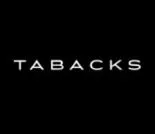Case Note: Montic Dairy (Pty) Ltd and Others v Mazars Recovery and Structuring (Pty) Ltd and Others (7523/19) [2021] ZAWCHC 20 (10 February 2021)
Under the Companies Act 71 of 2008 (“the New Act") a business rescue practitioner (“BRP”) is entitled to charge a company in business rescue for remuneration and expenses in accordance with a tariff, which fees the company pays. But if a BRP concludes that there is no reasonable prospect of rescuing the company, the BRP must give notice to the company, court and all affected persons and apply to court to discontinue business rescue and place the company into liquidation.
By bringing the winding-up application the BRPs are performing their statutory duty and should be promptly remunerated for such by the company. But in terms of section 341(2) of the Companies Act 71 of 2008 (“the Old Act”), every disposition by a company made after the commencement of its winding-up is void unless declared otherwise. The difficulty with this is that an application for winding-up is considered to have been brought the very day that the application for winding-up is issued by the court, not the day that the matter is heard and judgment given (the latter of which may take several months or years to achieve).
In Diener N.O. v Minister of Justice and Others [2018] 1 All SA 317 (SCA) (1 December 2017) the Supreme Court of Appeal confirmed that BRP's have a preference to payment from the free residue of the estate after the costs of the liquidation have been paid but before the claims of employee' for post-commencement wages and other post-commencement finance, whether secured or not. But this is of little comfort to BRPs as it does not account for payments in the period between bringing the winding-up application and the payments from the free residue in the liquidation scenario.
This issue was before the Western Cape High Court in the matter of Montic Dairy (Pty) Ltd and Others v Mazars Recovery and Structuring (Pty) Ltd and Others (7523/19) [2021] ZAWCHC 20 (10 February 2021). The facts leading to the dispute are as follows: the BRPs brought an application to commence winding-up of Montic Dairy (Pty) Ltd (in business rescue) (“Montic”) and debited Montic for their professional fees in the amount of R1,5m after the winding-up application was brought. Upon appointment the liquidators of Montic saw it fit to have the payment to the BRP's set aside under section 341(2) of the Old Act.
Counsel for the BRPs argued that the BRPs were discharging their duties and that their fees and disbursements should be paid. In addition, it was argued that the BRPs should be paid before the concursus creditorum (the coming together of the body of creditors in the liquidation scenario) of Montic because, if not, it may generally disincentivise BRPs from taking appointments lest they not receive timeous and complete payment of their fees. Conversely, counsel for the liquidators argued that once the winding-up application is presented, the public at large becomes aware of the true state of the company, the concursus creditorum is formed, and the BRPs should not be allowed to receive a super preference in payment that could, potentially, result in the entire free residue of the estate being paid to BRPs to the detriment of the other creditors.
Ultimately Gamble, J held that the payments made by the BRPs for professional fees after the application for winding-up had been brought was in contravention of section 341(2) of the Old Act, void, and falls to be repaid by the BRPs. BRPs beware!
The content of this article is intended to provide a general guide to the subject matter. Specialist advice should be sought about your specific circumstances.
